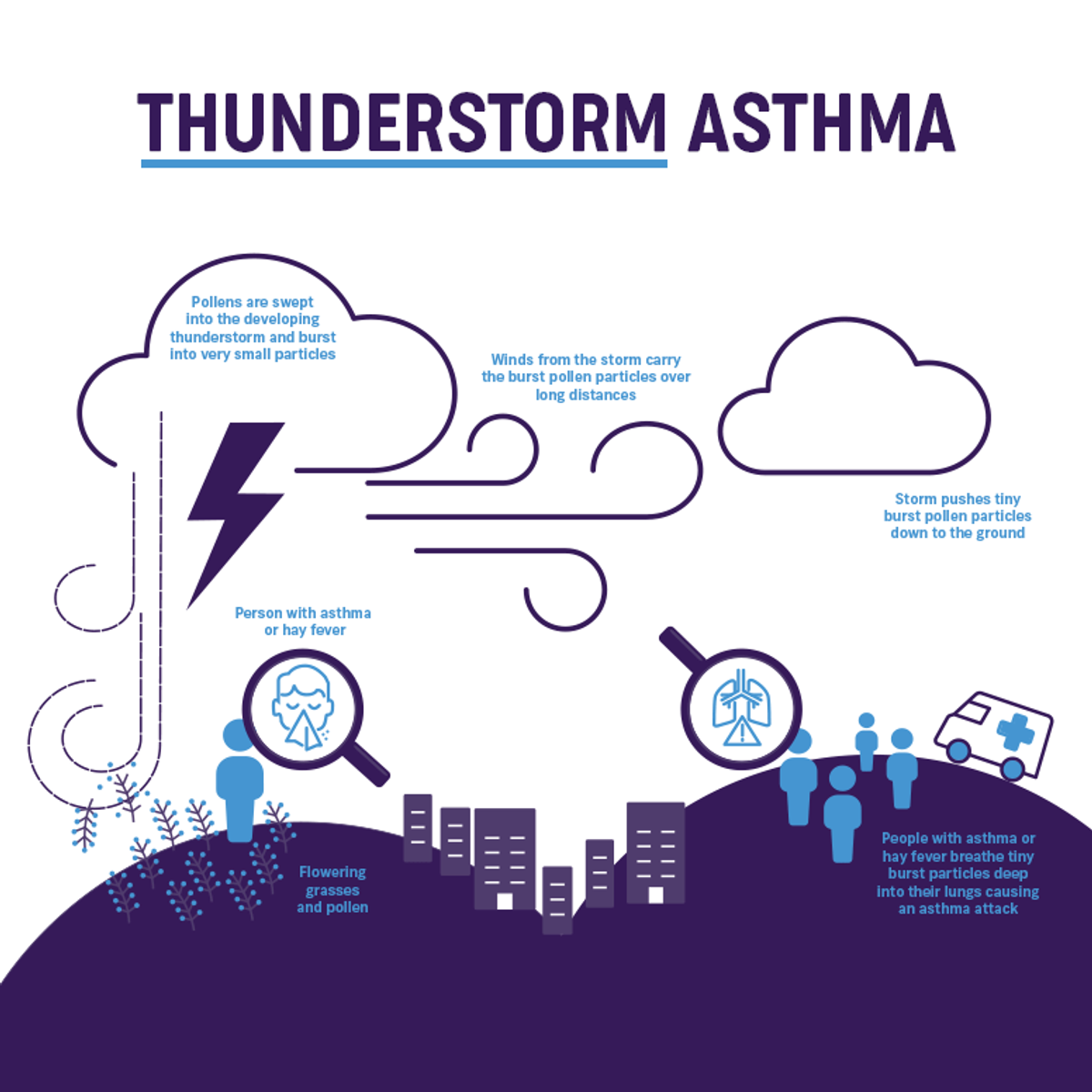A note from the Sick Bay

THUNDERSTORM ASTHMA - Be prepared this pollen season!
Grass pollen season, which typically runs from October to December each year in Victoria, brings an increase in asthma and hay fever symptoms. It also increases the risk of thunderstorm asthma. For people with asthma or hay fever, especially those who experience wheezing or coughing with their hay fever, thunderstorm asthma can be sudden, serious and even life threatening.
Figure 1: Thunderstorm Asthma (Asthma Australia, 2024)
Epping Views will implement a range of measures to keep our school community safe as the risk of thunderstorm asthma increases.
Many of our staff are trained in asthma first aid, and we will monitor the VicEmergency app to receive thunderstorm warnings, and where appropriate, keep students indoors when weather forecasts identify greater risk.
During the season, there are some things you can do to prepare and protect yourself and your family:
- If your child has ever had asthma, talk to your doctor about what you can do to help protect them from the risk of thunderstorm asthma this pollen season, including updating your asthma action plan. Taking an asthma preventer properly and regularly is key to preventing asthma, including thunderstorm asthma.
- If your child has hay fever, see your pharmacist or doctor for a hay fever treatment plan and check if you should have an asthma reliever puffer. These are available from a pharmacy without a prescription.
- If your child has hay fever and experiences wheezing and coughing, it is important to make sure they don’t also have asthma. Speak to your doctor about an asthma action plan.
- Where possible, avoid being outside during thunderstorms from October to December, especially during the wind gusts that come before the storm. Go inside and close your doors and windows. If you have your air conditioning on, turn it to ‘recirculate’.
Protect yourself this pollen season – managing asthma and allergies matters.
Find out more
For more information, speak to your doctor. You can also visit the Better Health Channel website.
If your child suffers from Hay fever and/or Asthma please ensure they take precautionary medication (antihistamine/inhaler) for symptom management before school.
Catherine O'Brien / Iness Khalil
School Nurse / First Aid

